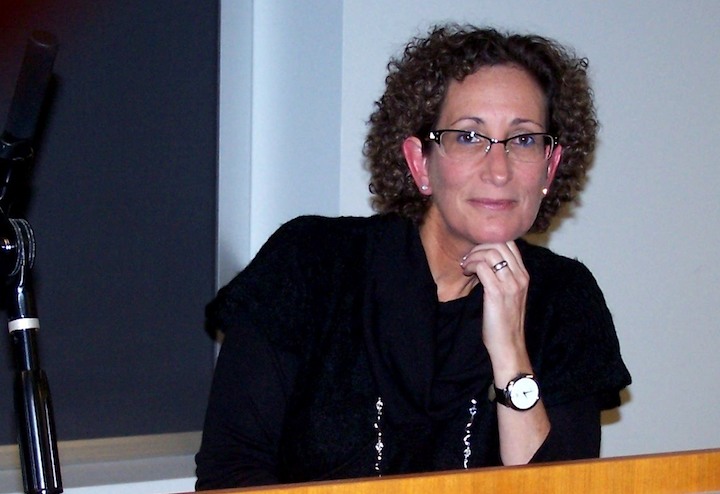By Janis Siegel , JTNews Correspondent
Whether they’re roasted, honey-covered, chocolate-dipped, spicy, salted, or just raw and out of the shell, people around the world love peanuts. In the U.S., that’s especially true during heated sports matches.
But Israel’s prolific and lucrative peanut crops were turning out more and more nuts with unsightly and unappetizing brown spots in the shell — spots that Europeans, one of the largest consumers of the Israel-produced legume, reject.
That’s when peanut farmers in the Negev region turned to Technion professor Ayelet Fishman. She has become their proverbial “best friend.”
The associate professor and her team in the department of biotechnology and food engineering at the Technion-Israel Institute of Technology developed a way to grow the highest quality peanuts whose shells are pristine and white — just the way Europeans love them, according to Fishman, with no blemishes in sight.
Their method is saving a lucrative industry and keeping Israel on the top of the list as one of finest and largest producers and exporters of thousands of tons a year of the beloved legumes.
“Israel is a very big exporter of peanuts to Europe,” Fishman told a joint meeting in January of the Northwest chapter of the American Technion Society, the Washington Israel Business Council, and the Washington Biotechnology and Biomedical Association. “European countries, especially in Italy and Switzerland, like peanuts in the shell, and they like the peanuts to be very white, and big, without any spots.”
Israeli peanut producers devote 5,000 acres of prime and limited agricultural land to the crop valued at 20 million euro or $25 million U.S. dollars for both domestic and international consumption. The kernels develop in the shell underground. But the higher-priced export variety was losing ground to a mighty microbe in the soil.
“There’s a peanut bacterium — a pathogen — that also likes peanuts,” said Fishman. “The peanuts themselves are not damaged but the shell looks very bad.”
To contend in the marketplace, Israel’s peanuts must compete with high-quality crops produced in Egypt and China.
“So how can you get rid of this peanut pathogen?” Fishman asked her audience. “The solution is in soil disinfection.”
According to Fishman, until 2000, farmers around the world used methyl bromide on all of their crops — until the United Nations showed it contributed to depletion of the ozone layer and banned it.
In the lab at Technion, Fishman and her team tested formaldehyde as a means of killing the pesky bacterium, which worked for a while until it disintegrated when the bacteria began to feed off of it.
Following a lead found in a 1954 study, researchers added calcium cyanamide to the formaldehyde, which worked. Soil tests had more than a 90 percent accuracy rate.
Farmers can now plant their crops with nearly complete confidence that the soil is bug-free.
Currently, over 200 fields have been tested, said Fishman, and the compound is in the FDA approval process for soil disinfection.
The combination could also be used with all crops.
Fishman and her lab also tested a black tar-like polymer substance that caused “solarization,” which, when applied to the soil, raised the temperature between three and four degrees — enough to kill bacteria. It is still in trials.
Fishman, who earned her undergraduate and advanced degrees at the Technion said she is also working on the challenge of producing high-quality food for an aging global population.
“We want to have food that is nutritious, with reduced sugar and a modified fat profile with micronutrients,” said Fishman. “We need to improve traditional food, ensuring that these nutritional choices are affordable.”
Currently taking a sabbatical at the University of California at Davis, Fishman is working on two of her other research interests — a yeast-driven, nontoxic method of producing a highly coveted rose fragrance and a process that would make renewable biodiesel fuel from consumed food.
She is engineering the enzyme lipase for use in the production of methanol, which is essential in biofuel production.
Fishman, not surprisingly, is also interested in food safety and organic gardening.
